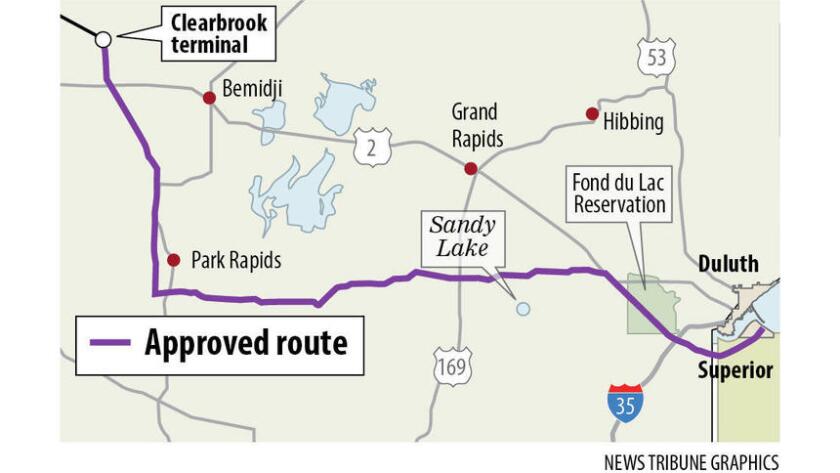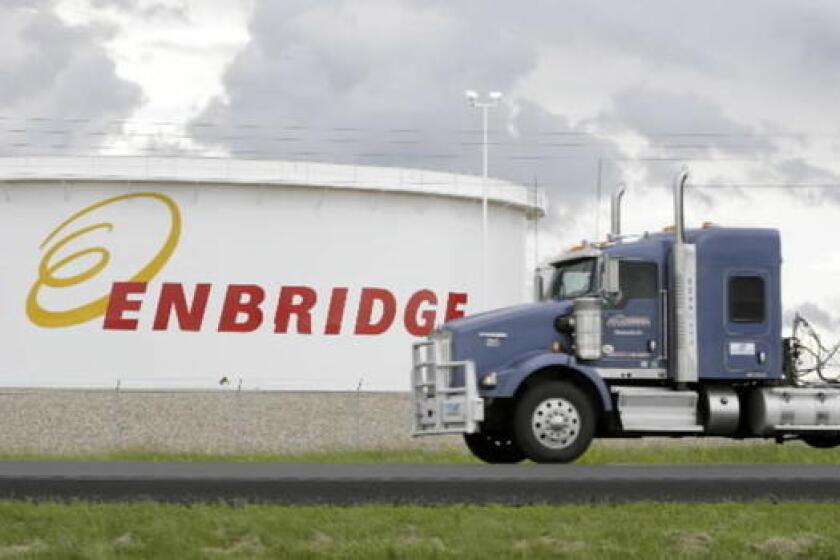DULUTH — The U.S. Army Corps of Engineers awarded one of the final permits needed for Enbridge's controversial Line 3 oil pipeline project as the company hopes to start construction by the end of the year.
The Army Corps determined the construction-related impacts of the 340-mile pipeline across northern Minnesota "is compliant with all federal laws and regulations," according to a news release issued by the federal agency Monday afternoon, Nov. 23.
The approval builds off the Minnesota Pollution Control Agency's decision 11 days ago that granted the project key state water permits and determined the project met Minnesota water standards.
"I believe our decision is based on sound science and strikes the balance between protecting natural resources and allowing reasonable development,” Col. Karl Jansen, the Army Corps' St. Paul District commander, said in the release.
All that remains before construction can begin on the pipeline is a stormwater construction permit from the MPCA and construction authorization from the Minnesota Public Utilities Commission.
ADVERTISEMENT
Enbridge celebrated the decision Monday in a statement.

"These permits are yet another science-based approval for the project moving Line 3 closer to the start of construction," Enbridge spokesperson Juli Kellner said. "Final state permits and authorizations are needed for work to begin before the end of 2020."
The project faces fierce opposition by environmental groups, the White Earth Band of Ojibwe and the Red Lake Band of Chippewa Indians. Opponents argue the risk of a spill is too high and the pipeline increases reliance on fossil fuels at a time when people should be moving to renewables to combat climate change.
Supporters of the project maintain the new Line 3 is needed to replace the existing and aging Line 3, restore the pipeline to its original capacity and create construction jobs throughout northern Minnesota..
Winona LaDuke, executive director of Honor the Earth, a native-led environmental group opposed to Line 3, said "The tribes and others will surely sue and we will see them in court."
"It’s tragic, but it’s not a surprise that the Trump Administration would approve these permits regardless of the water quality impacts from the pipeline, and during a time when a pandemic is sweeping across the north country with workers already here, flaunting health mandates and threatening to burden our fragile healthcare systems and our population," LaDuke said in a statement.
ADVERTISEMENT
Once complete, the pipeline will replace the existing, aging Line 3 and ferry 760,000 barrels of oil (31.92 million gallons) per day from Alberta, Canada, to Enbridge's terminal in Superior, following a new route through much of northern Minnesota. The segments in Canada, North Dakota and Wisconsin are already complete.
Enbridge said that as of last week, it had come to an agreement with all private landowners along the Minnesota route.









